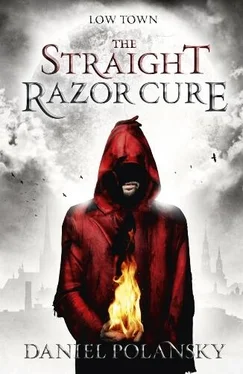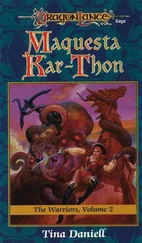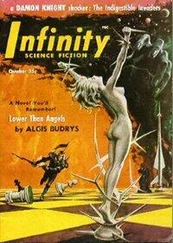Daniel Polansky - Low Town
Здесь есть возможность читать онлайн «Daniel Polansky - Low Town» весь текст электронной книги совершенно бесплатно (целиком полную версию без сокращений). В некоторых случаях можно слушать аудио, скачать через торрент в формате fb2 и присутствует краткое содержание. Жанр: Фэнтези, на английском языке. Описание произведения, (предисловие) а так же отзывы посетителей доступны на портале библиотеки ЛибКат.
- Название:Low Town
- Автор:
- Жанр:
- Год:неизвестен
- ISBN:нет данных
- Рейтинг книги:3 / 5. Голосов: 1
-
Избранное:Добавить в избранное
- Отзывы:
-
Ваша оценка:
- 60
- 1
- 2
- 3
- 4
- 5
Low Town: краткое содержание, описание и аннотация
Предлагаем к чтению аннотацию, описание, краткое содержание или предисловие (зависит от того, что написал сам автор книги «Low Town»). Если вы не нашли необходимую информацию о книге — напишите в комментариях, мы постараемся отыскать её.
Low Town — читать онлайн бесплатно полную книгу (весь текст) целиком
Ниже представлен текст книги, разбитый по страницам. Система сохранения места последней прочитанной страницы, позволяет с удобством читать онлайн бесплатно книгу «Low Town», без необходимости каждый раз заново искать на чём Вы остановились. Поставьте закладку, и сможете в любой момент перейти на страницу, на которой закончили чтение.
Интервал:
Закладка:
“I can’t remember. I’m high a lot.”
She set her hands against the desk behind her and arched her spine backward, a startlingly uninhibited display given her almost pathological self-consciousness, the rough equivalent in a normally functioning human of dropping her drawers and taking a shit on the floor. “Fine, don’t tell me.”
That was my preference anyway. “If I slipped off this covering and checked the boy for spots,” I asked, “would I find any?”
She gave a conspiratorial glance around, unnecessary, given that we were in an enclosed room, but understandable all the same. “Yes,” she said. “You would.”
It was what I expected, but that didn’t make it any easier to swallow. The Blade had done another child, taken him from beneath my nose, hidden him somewhere in the catacombs beneath his mansion, drained his life, and left him facedown in the river. And as if somehow these blasphemies were insufficient, he’d infected the boy with the plague, weakened the wards that protected the city from its return-all because he couldn’t stand the thought of honest labor or forgoing a few exotic debaucheries.
“If you took off the sheet and saw the rash,” she responded, “would you have any idea why it was there?”
“I’m looking,” I said, though my effort would mean little enough if the city again found itself awash in Red Fever.
Her eyes, normally as bright as the unclouded sky, fogged up. Uncertainty was a guise Marieke wore infrequently, and with more than her usual discomfort. “Right now, you’re the only one who knows. I don’t trust Black House, and I didn’t want to start a panic. But if another there’s another…”
“I understand,” I said. After a moment I asked the obvious question. “Why tell me?”
“I flashed something off you the first time we met, who you are and where you’re going. Something that told me I ought to let you in on it.”
That would explain the fit. That would explain, for that matter, why someone so congenitally incapable of kindness would even take the time to speak with me.
“Don’t you want to know what I saw?” she asked. “Everyone always wants to know what’s ahead of them.”
“People are fools. You don’t need a prophet to tell the future. Look at yesterday, then look at today. Tomorrow is likely to be the same, and the day after.”
It was time to leave. Wren was outside in the cold, and I had a ways left to go before I’d earn my day’s rest. I took a long look at Avraham. He’d be the last, I told myself, one way or another.
Marieke interrupted my thoughts. “Did you survive it, the first time?”
“It killed me,” I said. “Can’t you tell?”
She blushed a little, and rushed forward. “I meant did you…”
“I know what you meant,” I said. “And yeah, I survived it.”
“What was it like?”
People asked me that sometimes, if they knew I’d been in Low Town during the worst of it. “Tell me about the plague,” like it was some piece of neighborhood gossip or the outcome of a prizefight. And what could you tell them, and what did they want to hear?
Tell them about the first days, when it didn’t look to be any worse than every other summer-one or two from a block, the old and the very young. How the sick marks on the houses began to grow, to spawn and multiply till there was scarcely a shack or tenement that didn’t have an X scrawled on its front door. About the government men who came to burn them, that sometimes they weren’t so careful to make sure everyone inside was dead or to contain the flames.
Tell them about the second night after they put Momma and Papa on the wagons, when the neighbors ransacked our house, just walked in, not happy about it but not ashamed either, leaving with the few argents my father had managed to save, giving me a blow to the face when I tried to stop them. The same neighbors we borrowed sugar from and sang hymns with at Midwinter. And who could blame them, really, because nothing anyone did mattered anymore.
Tell them about the cordons around Low Town, the fat-faced guards who gorged themselves on bribes but didn’t let a single poor bastard out, ’cause as far as they were concerned we were scum, best kept from decent folk by the head of a pike. That I kept my eyes open for years and years afterward, looking to even the score, that I keep my eyes open today.
Tell them about Henni’s face when I came back without food the third day in a row, not angry, not sad even, just resigned-my poor little sister putting her hand on my shoulder and telling me it would be all right, that I’d have better luck tomorrow, and her voice so sweet and her face so thin that it broke your heart, just broke your fucking heart.
I guess I could have told her a lot of things.
“It wasn’t no big deal,” I said, and for once Marieke had the good sense to keep her damn fool mouth shut.
And by that point it was time to leave, leave before I did something I shouldn’t, and I gave Marieke a last quick nod-and I guess I looked hot because she tried to offer some sort of apology-a powerful show of contrition by her lights-but I ignored it and headed into the cold and sent Wren home with a curt dismissal. And even though I was too near downtown for it to be safe I jammed a vial of breath beneath my nose and pulled from it until my head was so filled with the buzz that there wasn’t room for much else, and I leaned myself against a wall until I felt steady enough to start the long walk home.
I holed up at the Earl for a few hours, drinking coffee with cinnamon while the storm buried the city under a solid layer of white. Toward the end of the afternoon I smoked a joint of dreamvine and watched Adolphus and Wren build a snow fort based upon what was, in my estimation, a lack of sound architectural principles. My concerns proved valid when a portion of the east wall collapsed, offering a decisive avenue of entry for an invading force.
They were enjoying themselves. I was having more trouble getting into the spirit of the season. The way I figured it there was at least one group of people trying to kill me, and possibly as many as three. Beyond that, the certainty of the Old Man’s deadline loomed omnipresent, a hum settled an inch behind my eyes. I couldn’t stop running over the math-seven days minus three days is four days, seven minus three days is four days, four days, four days.
Worse come to worst I could flee the city-I had made contingencies in case of similar circumstances, lives I had set up in remote regions that I could wrap myself up in and never return. But with the Old Man involved I couldn’t be certain any of them would last-nowhere in Rigus would be deep enough if he put his mind to smoking me out. I might have to flip, offer what I could to Nestria or the Free Cities and have them settle me in some distant province. I still knew where enough dirt was buried to be of interest to someone, I hoped. But that would mean I’d have to make provisions for Adolphus and Adeline-and Wren now too. I couldn’t leave them to catch my heat.
Deal with that when it comes, I told myself and started going over it all again, hoping to catch something different this time. I laid out the pieces in my head, one at a time, running over how Beaconfield had gone from a dilettante to a mass murderer.
He wakes up one day and realizes he doesn’t have enough ready coin to shortchange his tailor, and starts thinking of a way to rectify the situation. Probably Brightfellow wasn’t his first option, probably he’d had a few false starts. At some point he gets in touch with the sorcerer, and the two start talking. He wasn’t always a hack, doing chicanery for the upper crusts-he was a real practitioner, and he might have a way out, a happy ending on tap, so long as the duke isn’t squeamish about the means. The duke is not. They contract out Tara to a Kiren, some acquaintance of Brightfellow’s, but they pick wrong: their man botches the job and they have to kill him before he can be followed up the chain. They put the operation on ice for a few months and retool-no more freelance work, all the kidnappings are to be done in-house. First Caristiona goes, than Avraham, stolen and sacrificed, then dumped where their bodies couldn’t be traced.
Читать дальшеИнтервал:
Закладка:
Похожие книги на «Low Town»
Представляем Вашему вниманию похожие книги на «Low Town» списком для выбора. Мы отобрали схожую по названию и смыслу литературу в надежде предоставить читателям больше вариантов отыскать новые, интересные, ещё непрочитанные произведения.
Обсуждение, отзывы о книге «Low Town» и просто собственные мнения читателей. Оставьте ваши комментарии, напишите, что Вы думаете о произведении, его смысле или главных героях. Укажите что конкретно понравилось, а что нет, и почему Вы так считаете.











